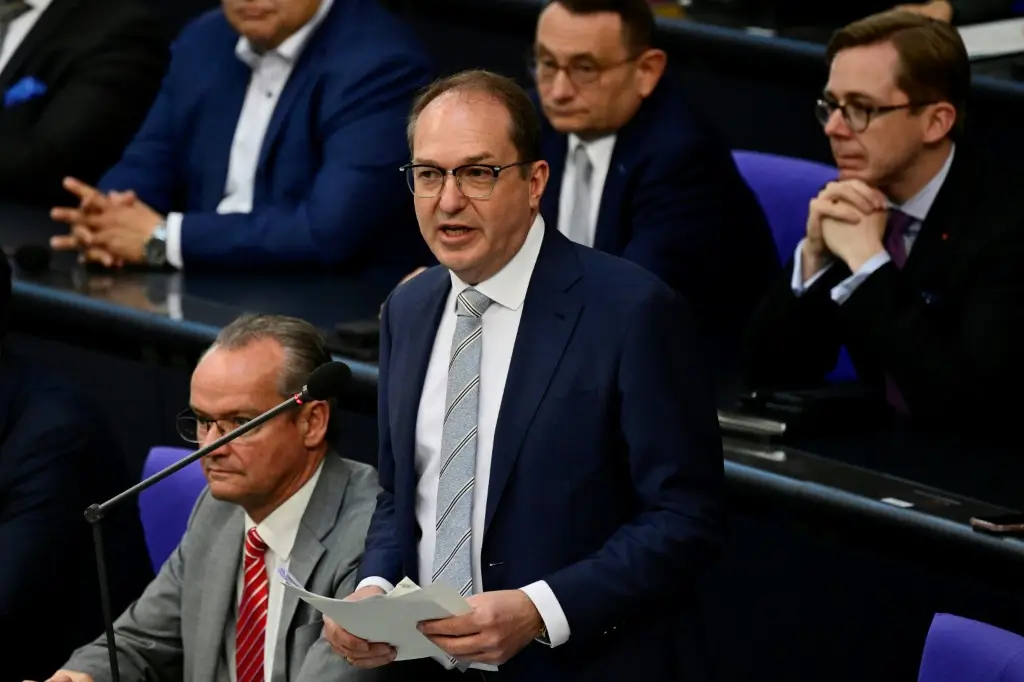
On Friday, the Bundestag approved by a large majority a two-year suspension of family reunification for refugees without asylum status. The bill, proposed by Federal Interior Minister Alexander Dobrindt (CSU), affects the relatives of people living in Germany without recognized asylum status. In the future, they will only be allowed to come to Germany in exceptional circumstances.
After a debate that was at times emotional, the bill was passed with 444 votes in favor and 135 against. The AfD had previously announced its support for the draft bill of the CDU/CSU-SPD coalition. The coalition justified the suspension of family reunification by citing the need to ease the burden on Germany's reception and integration systems. However, family reunification should remain possible in hardship cases.
In addition to suspending family reunification, the draft law also proposes reinstating the goal of limiting immigration in the Residence Act, alongside the goal of controlling immigration.
Affected by the suspension are family members of so-called beneficiaries of subsidiary protection. These are people who have not been recognized in Germany under the Geneva Refugee Convention or as asylum seekers, but who are allowed to remain for other reasons. This is the case if they face torture, the death penalty, or inhumane treatment in their home country. Civil war refugees are often affected. Those granted subsidiary protection are granted a residence permit for an initial three-year period, which can be extended.
In the debate, Federal Interior Minister Alexander Dobrindt (CSU) justified the law by arguing that it was necessary to limit immigration to Germany. He argued that the bill respects the limits of the state and society and thus also counteracts polarization within the country. The Left and the Greens criticized the bill as inhumane.
With the suspension of family reunification, 12,000 fewer people per year would come to Germany in the future than under the current regulations, Dobrindt said. The resilience of the German social security system, the education system, the childcare system, and the housing market has its limits, he emphasized. "That's why immigration to Germany must also have a limit, and we are reflecting this politically."
The law is the first major migration policy initiative of the new federal government, which has committed itself to limiting migration. "With it, we are setting the migration policy motto for this legislative period: humanity and order," said Dobrindt. The goal is also to dismantle the "business model of criminal gangs." This model is: "All one person has to do is make it to Germany, and then the whole family can follow," Dobrindt said. "The criminal business models of criminals, smugglers, and gangs are based on this logic. We are fighting against that today."
Dobrindt's speech was accompanied by some agitated heckles from the opposition. Bundestag President Julia Klöckner reprimanded Left Party MP Luigi Pantisano for accusing the Interior Minister of "lying" in his heckles. Left Party MP Clara Bünger criticized the law in her plenary speech as "cruel symbolic politics at the expense of the weakest." Family reunification is "one of the last legal options available today to find protection in Germany," Bünger said. "Those who block this path are forcing families onto escape routes that are deadlier and more dangerous than ever."
Green Party MP Marcel Emmerich criticized the law as an "attack on the heart of every society, the family." He called the law "ruthless" and meant suffering for children who cannot see their parents, for spouses who can only greet each other via screens, and for people who have long been part of this society but cannot lead a normal life with their families.
SPD speakers in the Bundestag admitted that they found it difficult to support the law, but that they were willing to support it out of coalition discipline. The suspension of family reunification is "an issue the SPD would never have thought of," said SPD MP Sebastian Fiedler. "You can say that without breaking up the coalition."
State Minister for Integration Natalie Pawlik (SPD) also said that many in her party found it difficult to support the bill. "Integration works better when families are together," she said. The law was a compromise with the CDU/CSU, but one that the SPD would support.
The AfD criticized the bill as inadequate but nevertheless announced its support. The law is "a small, important step," said AfD MP Christian Wirth. However, it is only "symbolic migration policy on a small scale" that does not address the "fundamental problem" – "the complete overburdening of our country by a partly self-destructive asylum policy."